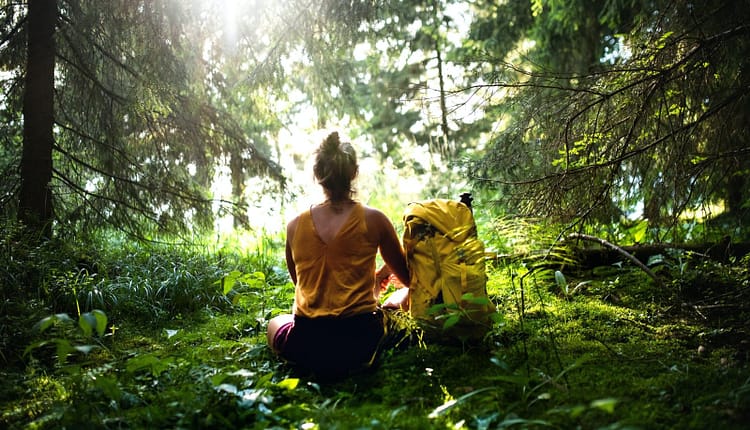
Salutations, fellow seekers of self-awareness! Have you ever wondered what it would be like to truly be present in the moment, to understand yourself on a deep level, and to live life with purpose and intention? In this guide, we will explore the steps to becoming more mindful and unlocking your true self-awareness. From meditation to journaling, from mindfulness exercises to mindful eating, we will delve into a variety of practices and techniques that can help you on your journey to greater self-awareness. Join us as we embark on this path of self-discovery and learn how to cultivate a more mindful and fulfilling life. Your journey to true self-awareness starts now!
Exploring Mindfulness
Before delving into the steps to true self-awareness, it’s important to understand what mindfulness is and how it can impact your life.
Mindfulness is the practice of being fully present and engaged in the current moment, without judgment. It involves paying attention to your thoughts, feelings, and bodily sensations, as well as the world around you.
Types of Mindfulness Practices
On your journey to greater self-awareness, it’s essential to explore different types of mindfulness practices to find what resonates with you. Some common types of mindfulness practices include meditation, yoga, deep breathing exercises, and mindful walking. Each practice offers unique benefits and can be adapted to suit your lifestyle and preferences.
| Meditation | Deep Breathing Exercises |
| Yoga | Mindful Walking |
- Explore different types of mindfulness practices
- Find what resonates with you
- Adapt practices to suit your lifestyle
- Enjoy unique benefits from each practice
- Integrate mindfulness into your daily routine
Though it may take some trial and error to find the right fit, experimenting with various mindfulness practices can lead to a more mindful and self-aware life.
Factors Influencing Mindfulness
With so many factors influencing mindfulness, it’s important to consider how your environment, relationships, and daily habits impact your ability to be present and self-aware. The pace of modern life, societal pressures, and personal stressors can all affect your mindfulness practice. By acknowledging these factors, you can begin to make intentional changes to support your journey towards greater mindfulness.
- Environment
- Relationships
- Daily Habits
- Modern Life
- Personal Stressors
Mindfulness is not just about quieting the mind, but also about understanding the influences that shape your thoughts and actions. By recognizing and addressing these influences, you can cultivate a more grounded and self-aware approach to life.
Embarking on the Journey

If you’ve been feeling stressed, overwhelmed, or disconnected, mindfulness might be just what you need to find balance and clarity in your life. Embarking on a mindfulness journey can help you develop a deeper understanding of yourself and the world around you. It can also improve your mental and physical wellbeing, and enhance your overall quality of life.
Tips to Kickstart Your Mindfulness Routine
Embarking on a journey of self-awareness and mindfulness can be exciting and fulfilling, but it can also feel daunting at first. Here are some tips to help you kickstart your mindfulness routine and make the most of your journey:
- Start with short meditation sessions to ease into the practice
- Set aside specific times for mindfulness activities, such as breathing exercises or mindful walks
- Stay open-minded and patient with yourself as you navigate this new journey
The key is to start small and gradually incorporate mindfulness into your daily life.
Step-by-Step: Cultivating Daily Mindfulness
Mindfulness can be cultivated through a variety of daily practices and activities. Here’s a breakdown of some simple steps to help you incorporate mindfulness into your routine:
| Mindfulness Practice | Description |
| Meditation | Set aside a few minutes each day to practice mindfulness meditation, focusing on your breath or a mantra. |
| Mindful Eating | Pay attention to the sensory experience of eating, savoring each bite and being present in the moment. |
| Gratitude Journaling | Take time to reflect on and write down things you’re grateful for every day, cultivating a positive mindset. |
Embarking on a daily mindfulness routine can provide a sense of calm and clarity, and help you stay grounded amid life’s challenges. By incorporating mindfulness into your daily life, you can improve your overall wellbeing and unlock a greater sense of self-awareness and purpose.
Weighing the Balances
After deciding to embark on a journey towards mindfulness, it’s important to weigh the balances and consider the various aspects of leading a more mindful lifestyle. Understanding the pros and cons can help you navigate through the challenges and make the most of the benefits.
Pros of a Mindful Lifestyle
The benefits of adopting a more mindful lifestyle are numerous. By being more present and aware, you can experience reduced stress and anxiety, improved relationships with others, and a greater sense of overall well-being. Mindfulness can also lead to increased focus, better decision-making, and a greater ability to handle difficult situations with grace and composure.
Cons: Common Challenges and Misconceptions
Weighing the cons of mindfulness, it’s important to acknowledge the common challenges and misconceptions that may arise. Some people may feel that mindfulness requires too much time and effort, while others may worry about feeling self-conscious or awkward when practicing mindfulness in social situations. It’s also important to address the misconception that mindfulness is solely about clearing your mind, when in reality, it’s about acknowledging and accepting your thoughts and emotions.
As you navigate the cons of mindfulness, keep in mind that these challenges are common and can be overcome with time and practice. It’s important to approach mindfulness with an open mind and a willingness to learn and grow.
Integrating Mindfulness into Your Life
To truly integrate mindfulness into your life, it’s important to start with small, manageable steps. Start by incorporating mindfulness practices into your daily routine, such as meditation, deep breathing, or simply taking a moment to focus on your surroundings. By making mindfulness a regular part of your life, you’ll begin to see positive changes in your overall well-being and self-awareness.
Mindfulness in Personal Relationships
With mindfulness in personal relationships, you can cultivate a deeper sense of empathy and understanding towards others.
By being fully present and attentive in your interactions, you can improve communication and foster stronger connections with your loved ones. Practice active listening and non-judgmental awareness to truly enhance your personal relationships.
Mindfulness at Work: A New Paradigm

Mindfulness at work can greatly improve your productivity, creativity, and overall satisfaction in your career.
By incorporating mindfulness practices into your workday, such as taking short meditation breaks or practicing mindful breathing, you can reduce stress, increase focus, and positively impact your work environment.
Your colleagues and superiors will also benefit from your increased emotional intelligence and ability to handle challenging situations with grace.
To wrap up
If you’re longing to tap into your true self-awareness and experience the benefits of mindfulness, then the steps outlined in this guide are the perfect starting point for you. By incorporating mindfulness practices into your daily routine, you can unlock a sense of inner peace, clarity, and self-acceptance that will positively impact every aspect of your life.
Remember that being more mindful is a journey; it requires patience, dedication, and a willingness to embrace the present moment. So, take the first step today and start your journey toward true self-awareness. You won’t regret it!

